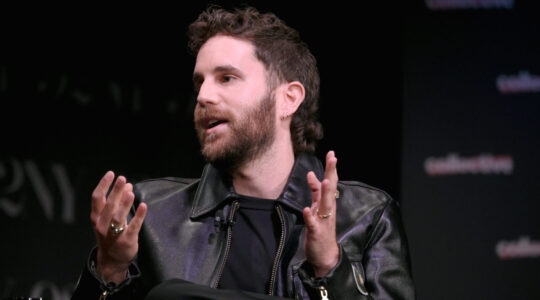
Earlier this week I attended the Righteous Indignation Conference, a three-day forum and workshop which provided a forum for progressive Jewish activists to share best practices, discuss current strategies and build community among each other. The event, which took place at Hebrew College in Newton Centre, Massachusetts, brought together over 100 Jewish activists from around the U.S., representing dozens of social action organizations, from the American Jewish World Service to J Street.
Among the various panel discussions and workshops which took place during the course of the conference, the two sessions which caused the greatest stir were the keynote panel, “Building a Progressive Jewish Movement,” and the Israel panel, “Talking About Israel.”
“Building a Progressive Jewish Movement,” which took place Sunday evening, featured Alana Alpert of Jews for Racial & Economic Justice, Michael Brown of the Jewish Organizing Initiative, Jane Ramsey of the Jewish Council on Urban Affairs, Jaime Rapaport of the Progressive Jewish Alliance, and Rabbi Sid Schwartz of Panim. The conversation focused on why previous efforts to organize a national progressive Jewish movement have failed and what the progressive Jewish community has learned from these experiences.
The discussion took an interesting turn when Rabbi Schwartz suggested that what the progressive Jewish community needs is to not build a “movement,” which he felt was marginalizing, but rather to alter the concept of Jewish identity itself so that being progressive could be seen as being synonymous with being Jewish. The remark set off a fevered response from the audience, which took turns at the microphone addressing Rabbi Schwartz’s assertion.
Unfortunately my MP3 recorder’s batteries had died earlier in the session unbeknownst to me, and so after checking the recorder and replacing the batteries, I was only able to get the tail end of the discussion. You can, however, listen to the discussion, beginning from the near-end of Rabbi Schwartz’s remarks, below.
[audio:/images/archive/righteous_indignation_050408_keynote.mp3]The other panel, “Talking About Israel,” which took place Monday evening, featured Dr. Dianne Balser of Brit Tzedek V’Shalom, Joseph Gindi, a Hornstein Fellow at Brandeis University, Dr. Leonard Fein, a seasoned liberal activist and writer, Rabbi Brian Walt of Rabbis for Human Rights, and Rabbi Melissa Weintraub of Encounter, a new program which brings American Jewish leaders to visit with Palestinians in the Occupied Territories.
Each speaker lauded the importance of liberal pro-Israel activism and explored the challenges posed by right-wing pro-Israel groups which often cast progressive politics as harmful to Israel’s interests. They also debated what was described as the “narrowing window of opportunity” that will allow for the success of the two-state solution, warning that if action is not taken quickly, a one-state solution will become inevitable.
In what would be seen as the most controversial presentation delivered that evening, Joseph Gindi spoke about what he considers the incompatibility of ethnic nationalism and civil democracy, and lamented what he sees as the damage to diaspora Jewish communities’ sense of self-worth wrought by the primacy given to Zionism. Gindi’s advocacy of the reinvigoration of diaspora nationalism over Zionism set off rancor among some panelists and audience members, with Leonard Fein noting that, in response to Gindi’s presentation, he had fought the urge to walk off stage as an act of political theatre. Others in the audience would later tell me that they were glad that Gindi was there to express what many of them have been afraid to say publicly.
You can listen to the full panel discussion, along with the audience discussion, below.
[audio:/images/archive/righteous_indignation_israel.mp3] To subscribe to JTA’s Behind the News podcast, click here.
To subscribe to JTA’s Behind the News podcast, click here.
(If, when listening via the audio player on our site, our podcasts sound like recordings of Alvin and the Chipmunks, that means you need to upgrade your Flash player. You can do so by clicking here.)
JTA has documented Jewish history in real-time for over a century. Keep our journalism strong by joining us in supporting independent, award-winning reporting.





